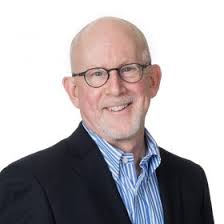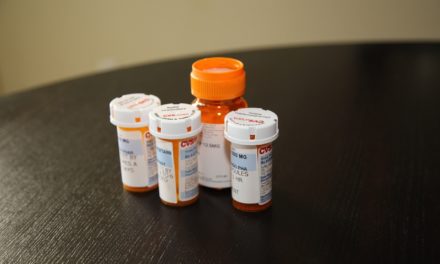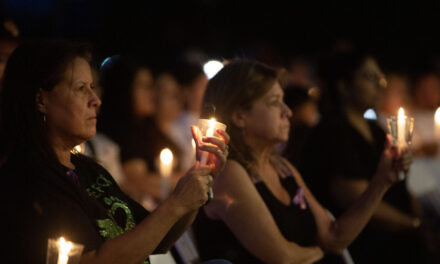PALM SPRINGS – Daniel Parker, Ph.D., a clinical psychologist with the Behavioral Health Services Department at Desert AIDS Project, has received the 2019 Psychology and AIDS Distinguished Leadership Award.

Daniel Parker, Ph.D
The American Psychological Association (APA) Ad Hoc Committee on Psychology and AIDS (COPA) bestowed the honor on Parker after reviewing nominations by his colleagues, and by leaders in the public interest community. This distinction is awarded to a single psychologist yearly, chosen among leaders in the field across the U.S.
According to APA COPA, Dr. Parker was chosen for this accolade after years of compassionate service to improve the lives of people living with HIV through clinical work, research, policy and advocacy efforts, and teaching and mentoring the next generation of HIV researchers and service providers.
At Desert AIDS Project, this has resulted in an elevated level of expertise offered to clients seeking therapeutic counseling in individual and group sessions. Dr. Parker became focused on HIV/AIDS nearly 30 years ago, soon after DAP.was founded in 1984, and has included clinical practice, advocacy and training in Australia and the U.S.
“We deeply value the empathetic, evidence-based and collaborative approach Dr. Parker brings to the 700 clients living with and at-risk for HIV who rely on DAP for behavioral healthcare,” David Brinkman, CEO of DAP, said in a prepared statement. “He is removing once seemingly impenetrable roadblocks from their journeys to health and wellness, despite HIV.”
Dr. Parker is known as DAP’s longest-tenured psychologist and recently as Director of Behavioral Health during record-breaking growth; 26 percent growth in clinicians and 59 percent growth in visits. His partnership extends back two decades while employed elsewhere. For many years he was one of the few clinical psychologists in several counties who could deliver culturally competent care for people living with HIV in a stigma-free, compassionate setting.
“I am deeply honored to receive this award from the APA, and to be part of a national community of psychologists and mental health providers who have worked over many years to improve the health and lives of those living with HIV,” Parker said in a prepared statement.
Today, Dr. Parker influences resource allocation, recruitment priorities and strategic planning by highlighting emerging needs in the HIV community. More than 80 percent of clients are living at or below the County’s threshold for Extremely Low or Very Low income and 63 percent are over the age of 50 years – most facing accelerated effects of getting older attributed to long term use of antiretroviral therapies and opportunistic health conditions.
According to colleague Dr. David Morris, Chief Medical Officer, at Desert AIDS Project, said, “Personally, I have observed how patients under my personal care are benefiting from individual therapy, support groups and collaborative partnerships with peers led by Dr. Parker,” Morris said in a prepared statement. “His influence is ensuring a rightful place for approaches to memory function and cognitive health, cognitive behavioral therapy for pain management, integrated diet management programs, strategies to combat social isolation and trauma-informed care.”
Policy and Advocacy Leadership
The guidance of Dr. Parker in three influential bodies—the APA’s Gerodiversity Committee, the LGBT Aging Issues Network Council of the American Society on Aging and the HIV & Aging Research Project—Palm Springs (a local consortium of researchers and clinicians)—is resulting in momentum and legitimacy for research grants and wider community participation. Past examples of his impact include obtaining funding to launch an innovative Cognitive Behavioral Therapy for Late Life Depression program and chairing the Older Adult Working Group of the Reducing Disparities Project which resulted in a state-wide survey measuring mental health service access and treatment for the LGBT community. In Australia, he has been part of state and national working groups advancing issues in LGBT and HIV aging.
According to Professor Nancy Pachana, Ph.D., Co-Director, UQ Ageing Mind Initiative, at the University of Queensland (Australia):
“Dr. Parker has sought out jobs that utilize his considerable skills with vulnerable populations,” she said in a prepared statement. “These are patients not only battling co-occurring disorders and negative social determinants of health, but decades of destructive experiences with stigma in the behavioral health profession.”
“With Dr. Parker, they find themselves establishing trust in a judgment-free environment,” Pachana said.
Additionally, Dr. Parker is motivating DAP leadership to address affordable pain management alternatives and embrace new approaches to long-term survivors and older adults. His expertise also is making it possible for the Federally Qualified Health Center to pursue recognition as a Patient-Centered Medical Home and a leader in providing transgender care.
According to colleague Jill Gover, Ph.D., Clinic Director, Scott Hines Mental Health Clinic at The Center: “Dr. Parker is aware that aging can compound the challenges facing those living with HIV,” she said. “He understands that specific therapeutic approaches are needed to address these problems, and works both in his practice and in the larger community to promote awareness of these issues.”
Teaching and Mentoring Leadership
Dr. Parker never stops sharing what he learns. Frequent lectures and training on issues relevant to mental health among people living with HIV promote excellence worldwide.
“Those of us who were once new to acknowledge the complexities that sexual orientation, gender identity and HIV infection played in our practice have found in Dr. Parker a guidepost and a mentor,” Dr. Nancy Pachana, a psychology colleague in Australia, said in a prepared statement. “I’ve watched clinicians in all stages of their career who were initially anxious or intimidated to tackle these emerging realities become culturally competent under his tutelage.”
In 2018 he engaged Pauline Crameri from La Trobe University in Melbourne, Australia to offer a training to DAP’s 230 staff members on addressing health and psychosocial needs of LGBT older adults, drawing upon research and best practices from her country.
This fall he served as the mentor to DAP clinicians attending the Global Education Initiative by the World Professional Association for Transgender Health (WPATH). As the co-chair of D.A.P.’s Transgender Health Program, Dr. Parker works closely with fellow co-chair and nurse practitioner, Anthony Velasco, MS, APRN, AGPCNP-BC, AAHIVS.
“Dr. Parker has illustrated leadership to open our doors wider so we can provide comprehensive and compassionate care to all people – regardless of their HIV status, sexual orientation, and gender identity,” said Velasco. “Dr. Parker has inspired all of us to do better and be better for the community we serve.”
Image Sources
- Daniel Parker: Desert AIDS Project
- Desert AIDS Project: Desert AIDS Project







